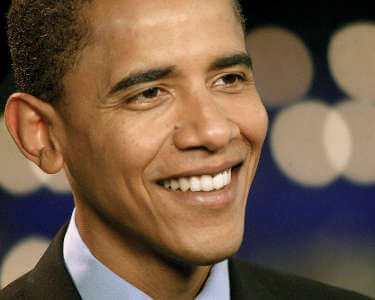The new White House Office of Faith-Based and Neighborhood Partnerships, established on Thursday, will have a broader and more secular vision than it did under George W. Bush.

Though Obama appointed former Pentecostal minister Joshua DuBois to lead it, the revamped office will, according to the White House, have a broader more secular vision than the faith-based ideas of George W. Bush — working on behalf of “all Americans committed to improving their communities, no matter their religious or political beliefs.”
To protect democracy and “the plurality of America’s religious and civic life,” the White House said Obama firmly supports church-state separation. The office is described as a resource for both secular and faith based nonprofits and community groups looking to “cut through red tape” to impact their communities.
One major change in Obama’s revamped office that critics are concerned about relates to how hiring practices for faith-based groups could change. According to Obama’s initiative, “on a case-by-case basis” faith-based groups that currently receive government funds, and that insist on only hiring employees of the same faith, could be told to stop considering faith when hiring potential employees.
Obama’s presidential campaign last year emphasized a belief in not only the good works of religious organizations, but also in the duties of a civil society. A part of his plan to bring change to America has involved tapping in to a sense of civic duty in citizens at the grassroots level — community organizers and groups theoretically unaffiliated with government agencies.
Obama said Thursday that though the government “can and must” help people in need during the current economic crisis, the change the country needs won’t come from Washington alone. “There is a force for good greater than government,” he said. “It is an expression of faith, this yearning to give back, this hungering for a purpose larger than our own, that reveals itself not simply in places of worship, but in senior centers and shelters, schools and hospitals, and any place an American decides.”
The White House states a major priority of the new office will be making community groups and the alleviation of poverty a major part of any economic recovery. The office will also attempt to support women and children in society, address teenage pregnancy and “reduce the need for abortion,” while striving to help responsible fathers who stand by their families.
Aside from just appropriating funds to various organizations, Obama’s office could also play a major role in policy-making and planning. The White House states one priority of the new office will be in expanding it beyond American shores, working with the National Security Council “to foster interfaith dialogue with leaders and scholars around the world.”
DuBois, a 26-year-old former associate minister at an evangelical church in Massachusetts affiliated with the United Pentecostal Council of the Assemblies of God, was the national director for religious affairs during Obama’s presidential campaign.
“Joshua understands the issues at stake, knows the people involved, and will be able to bring everyone together — from both the secular and faith-based communities, from academia and politics — around our common goals,” Obama said.
DuBois will oversee a 25-member advisory council that consists of influential religious and secular leaders, including: Florida pastor Joel Hunter; Frank Page, president emeritus of the Southern Baptist Convention; Rabbi David N. Saperstein of the Religious Action Center of Reform Judaism; Bishop Vashti M. McKenzie of the African Methodist Episcopal Church; and Eboo S. Patel, founder of Interfaith Youth Corps.
“The big picture is that President Obama believes faith-based and smaller secular neighborhood organizations can play a role in American renewal,” DuBois recently told the Associated Press. “They can work with the federal government to address big problems. We’re also going to make sure we have a keener eye toward the separation of church and state.”












































